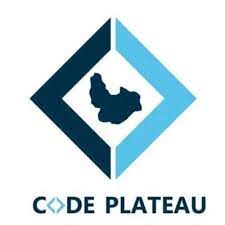Two weeks ago, Prince Ponfa Miri Foundation (PPMF) resigned from its role as the management partner of Code Plateau, a tech talent training fellowship which was initiated by the Plateau Information and Communication Technology Development Agency (PICTDA) in 2019 during Mr David Daser’s tenure as Director General.
According to Mr Prince Ponfa Miri, the Founder and President of PPMF, who has been involved with the fellowship since its inception, the decision was due to the lukewarm attitude of the current state administration towards the fellowship.
Could this be true?
PICTDA’s posture since this announcement was made underscores this allegation. It’s important to note that the agency has not released any statement despite public concerns and press requests.
Several social commentators and some of the over 1000 beneficiaries of Code Plateau have called on the state government to ensure that the programme continues. A day after the termination of the partnership, during a keynote speech at LinkedIn Local Jos, Mr Daser, the former Director General of PICTDA called on his successor, Mr Dominic Datong who was a former director at the Central Bank of Nigeria to ensure the continuity of the project.
He further advised Mr Datong to explore other funding opportunities instead of monetising the fellowship which has been free since its launch. “The objective behind starting Code Plateau was not to generate government revenue but to spark curiosity, foster innovation, and cultivate a strong tech culture among our citizens,” Mr Daser said.
PPMF alleged that the new administration was mulling over the possibility of making it a paid fellowship. “We fail to see why the current government is inclined to commercialise the program and modify its operational methods”, Mr Miri says.
Intending to train 20,000 young people since its appointment as management partner, PPMF has overseen the training for cohorts two through six, benefiting over 1,000 young individuals from Plateau state and neighbouring regions, including Bauchi, Taraba, and international participants from countries like Sierra Leone, according to data provided by JoeyOffAir.
Will this be the end of Code Plateau?
In 2020 when the leading African edtech startup, uLesson relocated its headquarters from Jos, Plateau state’s capital to Abuja, the startup cited the shortage of tech talent as one of the reasons for its decisions.
The launch of Code Plateau brought so much hope for talent development in the state, and the goal has been achieved to a large extent with several Code Plateau alumni working across the country including Sandra Mahanan who is currently working with the team that is building Omeife, the first humanoid from Africa.
Since PPMF terminated its partnership with PICTDA, activities have been halted at the Code Plateau Campus. “Hope [there] will have another cohort [at Code Plateau] soon?” Mr Daluk Naangong asked via a post on X. Only one entity can answer this question right now, and that is PICTDA, led by Mr Datong, who is
almost five months in office since the Governor of the State, Bar. Caleb Mutfwang, appointed him as DG of the agency. The DG has not released a statement to detail his plans for the agency since his appointment, making it unclear if Code Plateau, a brilliant initiative under PICTDA’s local content unit, is a part of his plans.
CrestHub’s Jos Founders’ Mixer in August was one of Mr Datong’s first public audiences with the Plateau tech community. Although he spoke about the need to collaborate with the private sector to drive the state’s digital economy, he did not comment on tech talent development.
CrestHub learnt that the mixer which was held two months after his appointment was the first time the DG was meeting with Mr Miri. He later visited the Code Plateau Campus a few months later after the informal meeting but his body language towards the fellowship has been passive.
Continuity is almost absent in our political glossary
Towards the end of Governor Simon Lalong’s administration, several questions were raised regarding the continuity of relevant programmes like Code Plateau. “With Nigerian politics, people don’t want to continue projects that were pioneered by their predecessor, especially if it is an opposition,” says MrJohnstone Kpilaakaa, a Tech Journalist at Bendada.com, who has actively covered the Northern tech ecosystem in the last six years.
Mr Kpilaakaa believes that Mr Datong’s lukewarm attitude is due to political reasons. “When it has to do with projects that are beneficial to the community, political differences should be kept aside,” Mr Johnstone added. Mr Miri underscores this point when he told JoeyOffAir that “They [referring to the current PICTDA leadership] appear to be treating it as a political endeavour.”
Notably, leading in both major parties in the state protested the possible suspension of the programme.
Terminating Code Plateau will take the state’s tech ecosystem several steps behind. Code Plateau Campus before its closure was a beehive of activities; different faces from various tribes, and political affiliations gathered every day for one reason: personal development, some were learning programming, others design, technical writing, content creation, and several other courses.
The launch of a similar initiative; the 3 Million Technical Talent (3MTT) by Nigeria’s communication, innovation and digital economy minister, ‘Bosun Tijani, shows the importance of tech talent development to the economy.
Will Dominic Datong learn from Tijani’s playbook? We hope so.

































